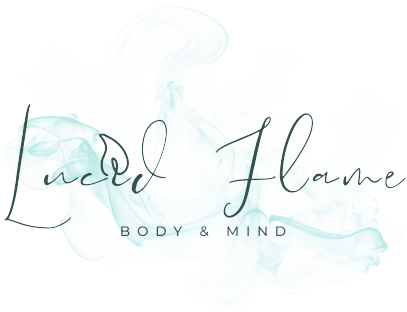Herbology & Therapy: Boosting Mental Health with Nature's Green Magic
Welcome to the world of herbology, where traditional wisdom collides with modern science, and the ordinary herb turns into a hero in the quest for mental wellness. Herbology offers a variety of benefits for mental as well as physical well-being, including:
Calming and Relaxing Impact: Several herbs with calming and soothing effects render them useful for stress relief and anxiety and for guaranteeing relaxation, including the soothing effects of chamomile, lavender, and lemon balm. St. John's Wort, for example, has been traditionally used to alleviate symptoms of depression that fall into the mild or moderate categories.
Adaptogenic Support: Adaptogenic herbs help the body adapt to stress and restore balance. They can support the adrenal glands, crucial in stress response and overall well-being. Popular adaptogens include ashwagandha, rhodiola, and holy basil.
Nervine Tonics: Nervine tonics are herbs that support and nourish the nervous system. They can help calm the mind, improve sleep quality, and promote overall nervous system health. Examples of nervine tonics include passionflower, skullcap, and oats.
Cognitive Support: Some herbs have cognitive-enriching properties and are typically used to support brain function, concentration, and memory. Ginkgo biloba and rosemary are only a couple of examples of herbs well-known for cognitive support.
Herbology, the study of medicinal plants, has existed for centuries. Let's explore the leafy labyrinth and uncover the secrets of these green guardians:
Lavender: Most are familiar with lavender for its calming effects, which reduce anxiety and improve sleep quality, which studies and ongoing research have established. In a 2010 paper published in the Phytomedicine journal, research established that lavender oil capsules could alleviate the symptoms of generalized anxiety disorder to the same degree as lorazepam, a traditional anti-anxiety medication.
St. John's Wort: Popularly known as the "sunshine herb," St. John's Wort is a natural mood booster. It's sunshine in a bottle that clears the gloom and enhances your mood. In 2008, a meta-analysis published in the Journal of Affective Disorders found that St. John's Wort is more effective than a placebo, being comparable to standard antidepressants for treating mild to moderate depression.
Chamomile: This pretty flower is more than a sweet tea-time snack. It's renowned for its soothing effect, which erases stress and leads to relaxation. It's a hug in a mug! Chamomile eases symptoms of generalized anxiety disorder. A trial in the Journal of Clinical Psychopharmacology (2009) revealed that chamomile extract significantly represses symptoms of anxiety compared with a placebo.
Ashwagandha: This ancient adaptogen is a stress- and anxiety-busting force. Think of it as your stress-busting superhero, ready to swoop in and save the day. With its stress-lowering powers, ashwagandha lowers cortisol levels and increases resistance to stress. A study published in the Indian Journal of Psychological Medicine (2012) demonstrated that ashwagandha root extract significantly reduced adult stress and anxiety levels.
Lemon Balm: This aromatic herb is often recommended for its calming effects and mood enhancement. It has been shown to reduce anxiety and promote a sense of tranquility. A study published in Nutritional Neuroscience 2004 found that lemon balm extracts significantly decreased anxiety and improved mood in healthy participants.
Rhodiola: Rhodiola, also called the "golden root," is an adaptogen that enables the body to withstand stress and enhance mental stamina. It has been shown to reduce symptoms of fatigue and enhance mood. In a 2009 study published in Phytomedicine, an extract of rhodiola was shown to have a marked effect on reducing symptoms of fatigue and improving mental function in patients suffering from stress-induced fatigue.
Valerian Root: Valerian root also has sedative properties and is used widely to improve sleep quality. It can inhibit anxiety and promote relaxation and is, therefore, an excellent option to defeat insomnia. Research published in Pharmacopsychiatry in 2002 showed that valerian root extract enhanced sleep quality and alleviated insomnia symptoms.
Passionflower: Passionflower can be taken to reduce anxiety and insomnia. It's a calming lullaby for your nervous system. In one trial published in the Phytotherapy (2001), passionflower extract effectively reduced anxiety symptoms in those with generalized anxiety disorder.
Herbology Meets Evidence-Based Practice
So, how do we incorporate these herbal wonders into the clinical world? The answer is to combine the best of both worlds: traditional herbology and evidence-based practice.
Integrative Therapy: Practitioners can offer an overall solution for mental illness by integrating herbal treatments and conventional therapies. For example, cognitive-behavioral therapy (CBT) with herbal supplements like St. John's Wort can enhance treatment results.
Personalized Treatment Plans: Just as no two leaves are alike, no two clients are alike. Tailored treatment programs with herbal medicine formulated to meet specific needs can be more effective and targeted.
Mindfulness and Herbal Teas: Combining herbal teas with mindfulness practice can create a calming ritual that helps restore emotional balance. Imagine beginning your day with a mindfulness session and a cup of chamomile tea—paradise.
Scientific Verification: Evidence supports the effectiveness of herbal remedies. Studies on herbs like ashwagandha and lavender have shown that they can soothe anxiety and foster mental health, and they are both safe and effective.
Holistic Healing: Plant medicines align with holistic medicine philosophy in treating the root cause of imbalance and restoring that balance in the mind, body, and spirit.
Customized Approach: Holistic healthcare practitioners can formulate customized regimens using plants as teas, supplements, even recreationally, adapting to everyone’s present needs, constitution, health status, and lifestyle.
The Future of Herbology in Mental Health
As we further research herbology's uses in mental health, we must be informed and optimistic. Blending past traditions with the science of the present may be the solution to a healthier way of maintaining mental health.
The next time you are stressed or anxious, try nature's medicines. Whether you enjoy a cup of lavender tea or use a personalized herbal supplement, the power of herbology may be the key to unlocking a happier, healthier you.
Stay leafy, stay happy!
